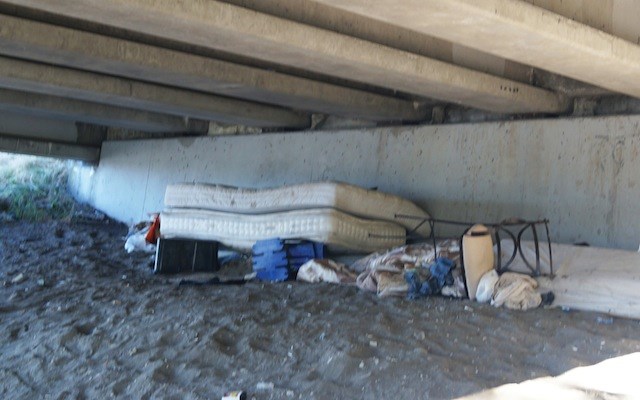Forty-two volunteers combed through shelters and areas where homeless people sleep this week, trying to count how many people in Richmond are currently without permanent shelter.
De Whalen, who has been on several counts before, said she felt the numbers were down, but that is not the message she’s getting from outreach workers.
Nevertheless, she was pleased with the exercise and community support trying to quantify the homeless population of Richmond.
“It was a good turnout – nice to see the community stepping up to volunteer to do the count,” said Whalen, chair of the Richmond Poverty Response Committee.
On Tuesday, there was a count of how many people are staying in local shelters.
On Wednesday, volunteers and service providers headed out at 6 a.m. with maps and directions based on information from outreach workers and community activists on where homeless people could be found.
They spent about 15 minutes with each person willing to be interviewed, asking some standard questions – age, where they are from, how long they’d been without shelter. But there were a few new questions this year as well, Whalen said.
Specific questions were asked about gender identity and gender expression – it’s been noticed that a disproportionate number of homeless people, especially youth, tend to be non-binary, Whalen said. Another new topic the survey asked about was whether they had sustained any brain injuries, either from overdoses or trauma.
During previous counts, homeless people were given candy and a cigarette for taking part, but this hasn’t been done for a while.
This year, following a suggestion from the Indigenous homelessness group, they gave out tobacco bags with a ribbon as a gift – something that was appreciated by those taking part in the survey, Whalen said.
Tobacco bags are traditional First Nations gifts, and tobacco is considered sacred, she added.
“It gave us a chance to learn about reconciliation and practice it,” Whalen said.
The preliminary count will be reported in April, and the full report should be released in the fall.



